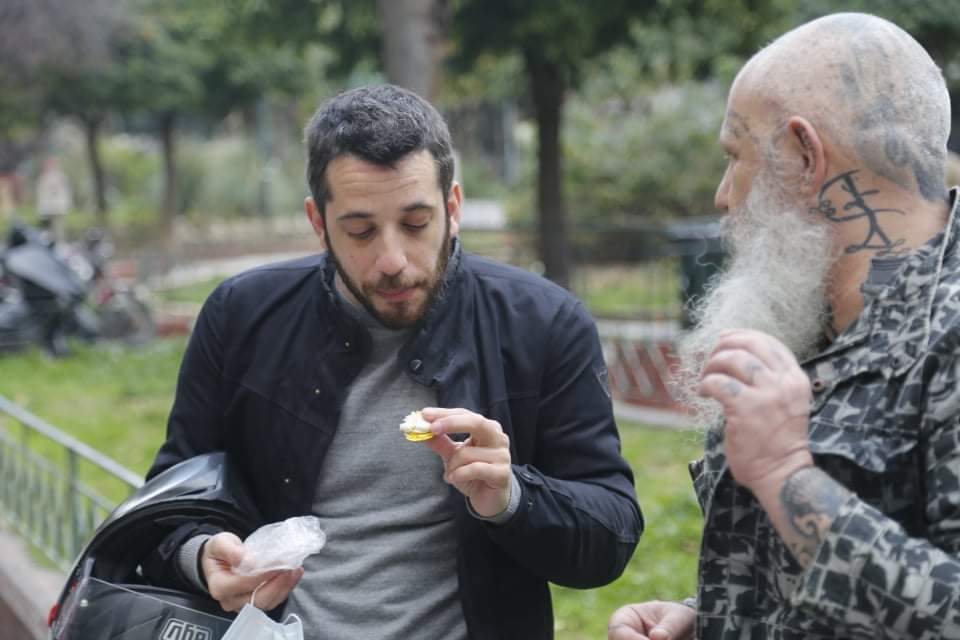
Pastry Making has No Borders
The meeting point is the corner of Fokionos Negri and Drosopoulou. I’m already 5 minutes late to meet Dimitris Stratakis, better known as Dimitris The Athens, who looks like a rock star as he’s leaning on the curbside with one of his associates, Nikos who brandishes his camera.
Spotlight
-

Τι αλλάζει στις οικοδομές με τροπολογία - Πώς θα «ψηλώνουν» τα κτίρια
-

Ποιο είναι το χειρότερο χαρακτηριστικό της προσωπικότητάς σας; - Αυτό το τεστ το αποκαλύπτει
-

Stella McCartney: H στήριξη από τον αδερφό της James και η ομοιότητά του με τον πατέρα τους
-

Λάκης Γαβαλάς: «Στη φυλακή είχα μηδέν λίμπιντο, δεν ξέρω αν βάζουν κάτι στο φαγητό»
Text: Georgia Drakaki Photos: Nickolaos Karman
A couple of weeks ago, a friend of mine suggested I check out an Instagram account with a curious yet interesting name. Clicking on the link, I saw pictures of pastries and pastry-chefs, that radiated optimism, freshness, and high aesthetics.
Immediately, I had these random thoughts.
- In Greece, Pastry seems to be a two-way affair; it either involves the pastries of our mothers, our grandmothers and of some half-decadent pastry shops or the pastries found on a screen, on the modern pastry shops and Instagram. On one hand you have sweet, rich pastries but with too much sugar and/or syrup and/or chocolate (the exceptions merely seem to support the rule of thumb) and on the other you have unsavory pastries, with brilliant looks, vegan choices, weird ingredient names, and fusion approaches to their making.
- The illustrious stars of Food porn, an exceptionally famous hashtag a couple of years ago, are the pastries themselves. Running fountains of chocolate, well-shot nuts, excellent setups, angles that make you want to devour everything you see right then and there.
- I had never been fond of ‘restaurant-y” desserts with their deconstructive and minimal approach. Though I have eaten on some of the most illustrious restaurants out there, there are very few cases where a pastry really stuck with me so much so that it compelled me to return to the place where I tasted it. To be honest, I am not a huge fan of pastries. If the culinary art is a realm of two kings, Salt and Sugar, I am a loyal adept of the former.
- Last Christmas though, I was at a loss for words with the outstanding panettone of Pastry Chef aka confectioner Antonis Selekos. Not with pork & plums, not with a stuffed turkey, not with shiny, buttered baby potatoes baked in the oven or some fancy pasta au-gratin. But with a panettone. And lo and behold, there is Antonis Selekos all smiles and honesty, displayed on No Borders Pastry Chefs.
Enough thinking, time to act! I wanted to meet the man behind the Instagram account with the sweetly rebellious personality (and I’m being literal here!) in person, and I couldn’t do it without Selekos who, besides his impeccable panetone, had rekindled my love for the absolute ‘vintage” dessert; the Black Forest.
But that is a whole, different story. With more and more bites taken with closed eyes.
View this post on Instagram
The meeting point is the corner of Fokionos Negri and Drosopoulou. I’m already 5 minutes late to meet Dimitris Stratakis, better known as Dimitris The Athens, who looks like a rock star as he’s leaning on the curbside with one of his associates, Nikos who brandishes his camera.
A few minutes later, Antonis Selekos joins us and as soon as he parks his motorcycle, he receives a most precious gift from Stratakis; a few lemon macarons from the ‘Aktaion’ pastry shop in Naxos, with a genuine French air about them. I claim my share to bliss, and I take one. It melts in my mouth and its aromas are indescribable. Can’t think of a better way to start a conversation about pastry, borders, no borders and of course travelling.
Stratakis has done numerous projects involving music, concerts and clubbing from Greece to Ibiza, both as a producer and organizer. He lived in Berlin some time ago where he studied photography – and in turn started working as a photographer. You can see some of his projects here.
While digging around the internet for info regarding Dimitris Stratakis I stumble upon a quote from one of his more recent interviews; “I’ve been to 84 countries and I’m stuck on this number for some years now. So, my dream is to visit as many places as possible because that experience fulfils me both in my work as a photographer and as an opportunity to try local cuisines. And when I say try local cuisines, I mean everything. From the most expensive Michelin restaurants to the shadiest street food canteens. After tons of junk food from the canteens outside Gate 7 (Olympiakos’ fans stadium) I can practically eat anything.”
Two people who take their jobs seriously, but not themselves – here’s a small ingredient to success.
He tells me that he has done photoshoots and ate in all these countries. And yes, that was how he came to contact with the “No Borders Pastry Chefs” project’s vital fuel; people and flavors have no borders. Dimitris Stratakis met with Antonis Selekos (you’d best remember the name of this young man from Astypalaia, because it will be heard a lot in the years to come) and where united in their love for food and pastry. Dimitris eats and savors – he doesn’t even know how to make whipped cream. And he is not a food-photographer. He has done food photoshoots abroad, to be included in books, but it is not his specialty, nor does he want it to be. “He’s the only person who hasn’t asked me for any recipes. He doesn’t want to make it, he wants to taste it!”, says Antonis.
Dimitris is all about beauty, whether it involves a song from Vevilos whom he loves, or from the low-bap scene in general, or a female figure that inspires him. Or a sunrise seen through a porthole. And a great deal of other things more poetic… or less.
View this post on Instagram
“I really liked No Borders as an account, as a thing. It’s a good start to promote an immensely powerful message: pastry, as well as photograph have no borders”, Selekos remarks. “Besides, these two are practically inseparable now, thanks to the internet”, adds Stratakis.
They both agree on the fact that, nowadays, if you’re doing pastry and not photographing/ posting it online, it’s as if you have never made it in the first place. Back in the day, if you made a delicious dessert, someone would ask around about you, discover you. “Regardless of the power of photos and the internet, I believe that discovering something hidden by yourself had a certain charm”.
I’m going to agree with him that whatever impact social media can have, is fleeting. A delicious bite, something savory and with quality, that kind of thing stays with you, makes its own course. Basically, that is the whole point.
What is the future of “No Borders”?
It is an important and interesting initiative to create an account that promotes equality between pastry chefs, regardless of the color of their skin, religion or sex, ethnicity or origin of the ingredients they use. But where can it really go, apart from our own phone screens?
Dimitris Stratakis explains: «We want it to become a foundation; To acquire real value, to materialize. We want to inspire people to showcase their art, their work, to shed their fears and step-out of their comfort zones. When this idea started to take shape, the first person who supported and encouraged me was Michel Pretet, a famous and established French Pastry-Chef. His positive attitude towards the concept helped me to keep on believing in a kind of Pastry which promotes equality and has nothing to do with things like racism, sexism and exclusion; and that’s the philosophy we wanted our logo to put out.»
«And when I talk about equality, I’m referring to that between a great chef and an amateur one, between a chef with the best equipment available and access to hard-to-find ingredients and a chef with modest ingredients on the workbench and his/her grandmother’s recipes in hand.»
But in all reality, how can a well-established pastry-chef with a big salary and appearances on TV shows truly be equal to, let’s say a very talented cook or pastry-chef who works two jobs to support his/her family?
Antonis and Dimitris believe that everyone working in culinary, or pastry should have equal chances to success, but people, the ‘audience’ should also have to open their minds and desires for experimenting – that way maybe they’ll debunk some of the ambassadors of the confectionary elite and perhaps fall in love with the creations found on the display of a humble, small-town pastry shop or reappreciate a traditional pastry rather than a sweet concoction with a complicated, long name.
“Of course, there’s room for the elite. There are well-established pastry chefs who build their name not by chance, but with hard work. And we cannot avoid acknowledging the spearhead of pastry, the French…” declares Stratakis.
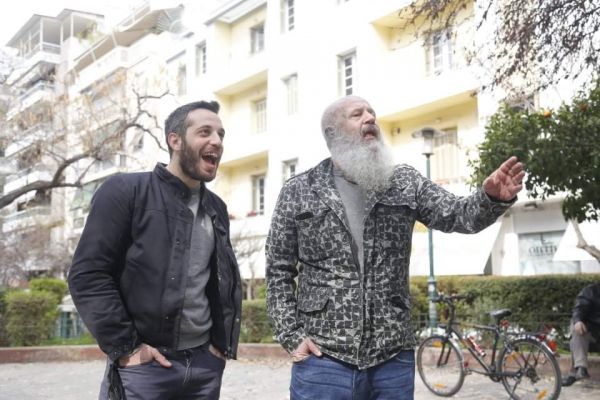
“As long as there’s room for the next generations of pastry chefs, respect for each country’s tradition, harmonious co-existence of creators and creations. There are many borders which have been torn down and so many more we have to overcome yet.”
I am inclined to agree. Bottom line is a pastry’s purpose is to make us happy.
While conversing with Antonis Selekos, you suddenly work an appetite for something sweet. He is passionate about his work, but he has other things in mind, far more important than pastry, like eliminating exclusions.
Truth is, we have come a long way to eradicate discrimination. The ‘republic” of pastry has broadened its horizons and nowadays, anyone can taste something decent, if not perfect, always according to one’s budget.
Gone are the times of linen tablecloths, uptight waiters in black and overrated dishes and desserts; Comfort takes the lead now and the new generations of creators go back to their roots with all that implies; More substance, pleasant simplicity, use of local ingredients and, of course, improvements on traditional recipes that serve as an inspiration but can become something more relevant for the tasting buds of a wider audience and claim their right to whatever globality.
Asia for example has made a big step towards leaving its culinary footprint in the West. And yes, we’re talking about Asian pastries as well. Greeks are living abroad, and they bring their influences back to our country, creating deconstructed galaktoboureko for example, which has robustness and a reason to exist. Greeks who, after having eaten tons of millefeuille and banana bread, come to appreciate the sanctity of a humble, yet heavenly delicious local ergolavos and a spoon-sweet or a macaroon.
“Pastry making is love. We’ve tasted great pastries, even from self-taught confectioners who make them at home. Isn’t that another border to be brought down as well?” Stratakis asks rhetorically and we all agree with him.
Besides evolving No Borders into a foundation, an idea that has been talked about is the creation of a No Borders Lab, a seminar space where anyone can participate with a low fee, so they can have the chance to get in touch and interact with some great, established chefs, who would otherwise be inaccessible to them.
“Often, professional seminars are more formal. For instance, participants usually are too embarrassed to ask a question. This situation will not be a thing in No Borders Lab. The values of savoring, of creation and trying new things will be dominant. We are confectioners, let’s get our hands dirty, let’s have a good time, let’s talk about our art and, in the end, let’s get to know each other a bit better and learn from one another”, explains Selekos.
“The perception and reality that kitchens are harsh and the Head Chef is a strict leader are gradually subsiding; that doesn’t mean the value of the profession is debunked. Let’s take a step back and relax a little bit…” he adds.
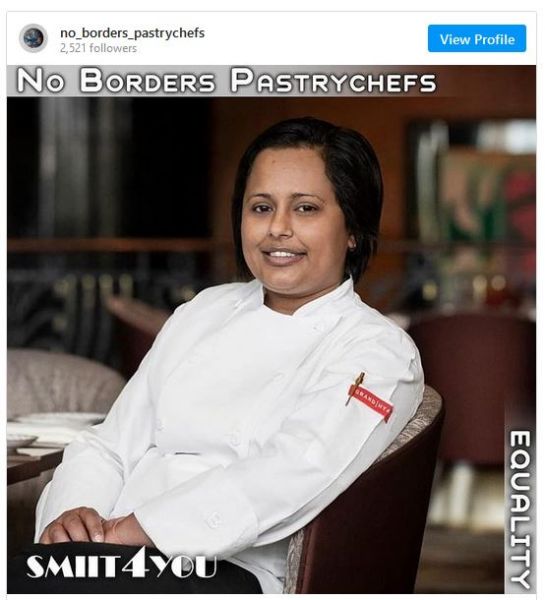
Stratakis intervenes; “Kitchens are a lot stricter workplaces than showbiz. The average Head-Chef is far stricter and harsh than, let’s say, a director. Besides Aggelos Aggelopoulos who was absolute in his views of course, who taught me as a photographer what it really means to shoot the fog. He used to say we’ll wait as long as it takes until what we visualized appears on the camera. The same principle applies to sourdough, doesn’t it? Or with the sugar-coating of marrons? The wait, the expectancy, the patience.”
No Borders inspires closeness, coming together. Pastries are no longer defined from Michelin stars but from their quality and their flavors. Here in Greece, we’re not known for our pastry, and up until recently, haven’t exported our own pastry creations to the world.
As Antonis Selekos observes, keenly in my humble opinion, here in Greece the notion of synergy, which in turn leads to creating trends, is virtually non-existent. Thus, we are bound to follow, not lead. “In Peru for example, they made a huge ‘bang’ with their cuisine. Everyone came together first and then half the world started enjoying ceviche and not just that… And that’s exactly what we need to do here”, he adds.
Antonis’ favorite pastry shops in Athens are ‘Asimakopoulos’, ‘Krinos tou Aiolou’ for their dumplings, ‘Duree’ in Chalandri and ‘Melissa’ in Peristeri. Dimitris also speaks highly of ‘Asimakopoulos’, a pastry shop that stands proud for over 30 years, and also of ‘Choc-O-Rock’ in Cholargos, ‘Ourse’ in Glyfada and ‘La Maison” in Kallithea.
Thankfully, the discussion about pastries and pastry-making is never over!
Ακολουθήστε το in.gr στο Google News και μάθετε πρώτοι όλες τις ειδήσεις




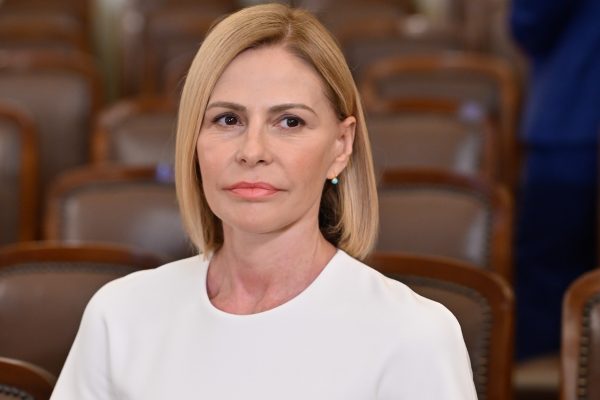














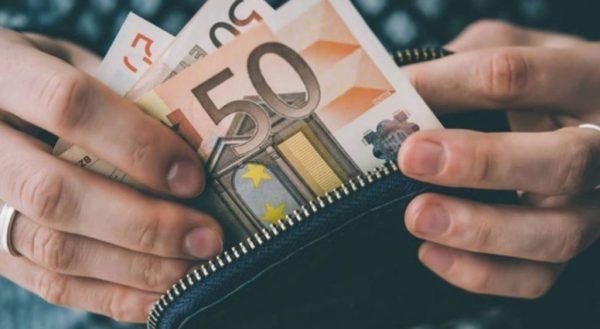








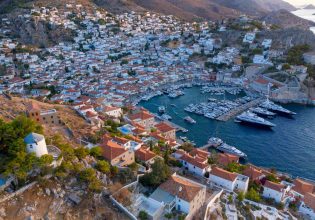

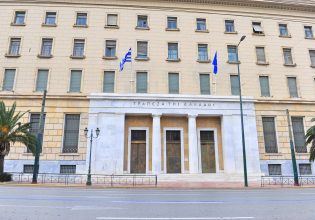





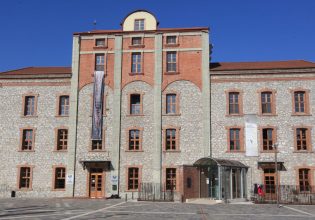

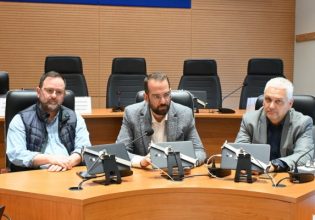


 Αριθμός Πιστοποίησης Μ.Η.Τ.232442
Αριθμός Πιστοποίησης Μ.Η.Τ.232442